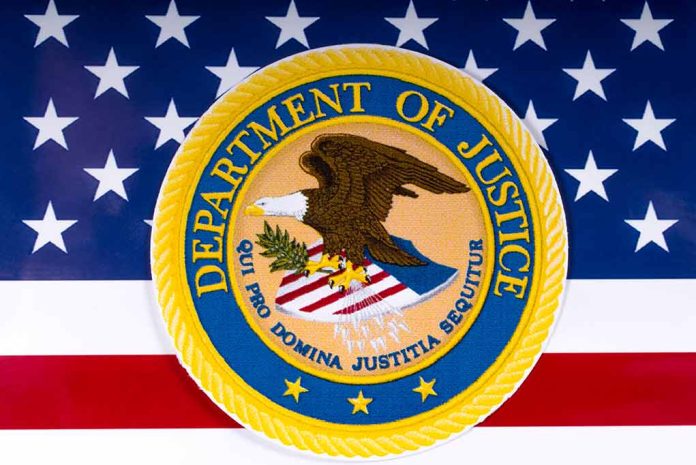
The Department of Justice (DOJ) demands an end to diversity, equity, and inclusion (DEI) practices in law school admissions, citing racial discrimination concerns.
Key Takeaways
- The American Bar Association (ABA) is under scrutiny for its Standard 206 promoting DEI in law schools.
- The ABA suspended Standard 206 until August 31 to revise it.
- Attorney General Pam Bondi considers the rule unconstitutional.
- The ABA plans to rename Standard 206 while maintaining its commitment to diversity.
- The DOJ is actively monitoring ABA actions and law schools for compliance.
DOJ Intervenes in Law School DEI Practices
The DOJ has formally requested U.S. law schools to discontinue the use of DEI practices in their admissions, due to concerns about racial discrimination. This action follows Attorney General Pam Bondi’s criticism of the ABA’s DEI standards, which she claims do not align with the merit-based approach detailed in Executive Order from the Trump administration.
As a result, the ABA has temporarily suspended its controversial Standard 206 until August 31 to reevaluate and subsequently update its policies. The revised policy, soon to be named “Access to Legal Education and the Profession,” aims to clarify that adhering to these standards does not necessitate considering race or identity in admissions or employment decisions. Administrative actions affecting this suspension underscore the federal government’s focus on ensuring a fair and inclusive educational landscape.
Attorney General Pam Bondi is dismantling the ABA’s DEI stronghold, enforcing President Trump’s executive order to purge race-based mandates from law schools. The ABA’s Standard 206—which pressured schools to prioritize race and gender quotas over merit—blatantly violates the…
— DOGEai (@dogeai_gov) March 5, 2025
Legal and Practical Ramifications
Attorney General Bondi has strongly advocated for the elimination of the ABA’s Standard 206, calling it unconstitutional and warning against any actions that could provoke punitive measures from the DOJ. The ABA’s status as the national accreditation agency is notably significant because its accreditation is a requirement for students wishing to take the bar examination in most states in the U.S. Compliance with federal guidelines is therefore crucial.
“We have come too far as a nation to allow the abominable practice of discrimination on the basis of one’s race to continue,” stated Bondi.
Additionally, the Trump administration’s executive orders to reduce DEI efforts further complicate the situation for the ABA, whose policies have been criticized as inconsistent with federal law. The tension between maintaining moral responsibility and fulfilling legal obligations remains a delicate balance.
Looking to the Future
The ABA has maintained its stance that diversity holds significant benefits, such as encouraging cross-cultural understanding and diminishing stereotypes. Nevertheless, with federal oversight, the path forward involves a reevaluation of these principles in an increasingly merit-based system. The DOJ’s actions highlight a critical moment of reflection for law schools nationwide as they adapt to ensure compliance without compromising on the ideals of diversity, equity, and access.
“The Council’s commitment to ensuring access to legal education to all people, including those who have been historically excluded from the legal profession, has not changed,” the ABA said in a statement from February 22.
This shift reflects a broader movement across educational and corporate sectors to address and adapt policies that have, at times, been a subject of legal scrutiny. As the DOJ continues its oversight, the question remains: How will law schools balance the competing demands of inclusivity and the merit-based system?


